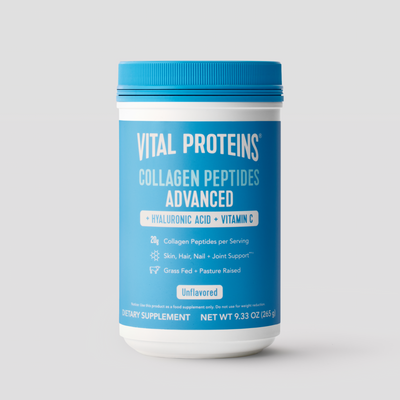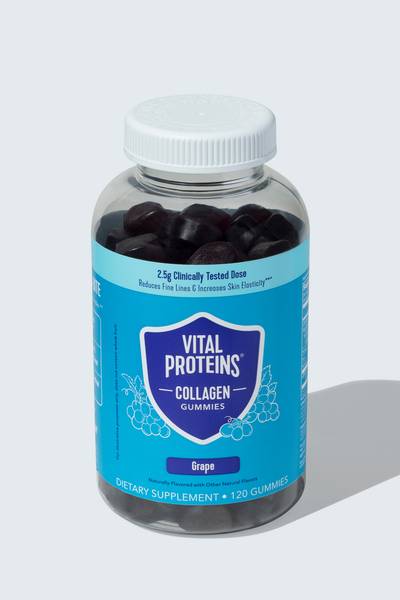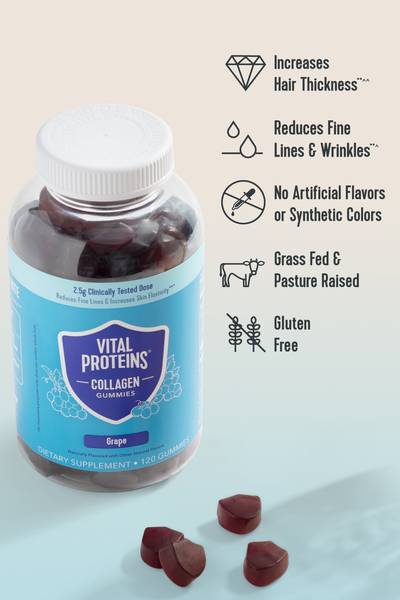You can't get too far in the world of health without talking about calories i.e., units of energy. If you've ever tried to lose weight, or are working toward a fitness goal (like marathon or strength training) chances are you’ve asked yourself, "how many calories should I eat a day?"
While there are many guides on the internet, calorie counting isn't a one-size-fits-all approach. The amount of calories you should be consuming daily depends greatly on different factors, such as sex, weight, age, height and activity level. Basically, what works for one person may not for another.
Here, we asked several nutrition experts to help solve this calorie question once and for all.
Vital Note: This article has been made available for informational and educational purposes only. It is not intended to be a substitute for professional medical advice, diagnosis, or treatment. Always seek the advice of your physician or another qualified health provider with any questions you may have regarding a medical condition. Your licensed healthcare professional can best provide you with the diagnosis and treatment of any medical condition and assist you as well in deciding whether a dietary supplement will be a helpful addition to your regimen.
Is it safe to eat 1,200 calories a day?
There is no magic number when it comes to calories. And if there was, the nutritionists agree that it wouldn't be 1,200. There are actually many health risks that come with eating only 1,2000 calories in a day.
"Consuming just 1,200 calories a day long-term can put the individual at risk for nutrient deficiencies, significant (unhealthy) weight loss, reduced energy, irritability and even malnutrition," explains Lisa Richards, nutritionist and Author of The Candida Diet.
If you're trying to lose weight, under-eating can actually backfire.
"Your body may go into starvation mode and slow down your metabolism," says Heather Hanks, a nutritionist with InstaPot Life holding an MS in Complementary and Alternative Medicine (CAM).
Of course, there are some exceptions to this limited number. For instance, some people’s bodies can withstand a low number while still getting required nutrients. Richards points out that 1,200 calories can be doable for short periods of time. In these cases, those individuals should be under doctor supervision.
How many calories should I eat a day to lose weight?
In order to shed some pounds, you need to be eating in a calorie deficit. According to Leah Forristall, RD, LDN, this means that you need to be consuming fewer calories than the amount you would consume to maintain your weight (also known as maintenance calories).
If weight loss is your goal, you might want to see a difference fast, but doing so isn't realistic — or healthy. A healthier approach is losing half a pound to one pound in a week, according to Forristall. At most, you should be aiming for two pounds per week.
The first step required in answering "how many calories should I eat a day to lose weight" is calculating your basal metabolic rate (BMR), explains Richards.
This is the number of calories your body needs to perform basic functions that are life-sustaining. Using that number, you can determine your calorie deficit. So, if you wanted to lose one half to one pound per week, Forristall says that your calorie deficit would be approximately 250-500 calories consumed per day less than what you would eat to maintain your weight.
Example: If you maintain your weight consuming a 2,000 calorie diet, you could expect to lose one pound per week by consuming 1,500 calories per day.
Related Articles
How many calories should I eat a day by age?
There are many factors that influence how many calories you should be consuming in a day. According to Lucinda Lynn Earle, MPH, RDN, this includes gender, height, genetics and level of activity. Another factor is age.
"The rate of calories that need to be consumed on a daily basis will vary depending on age and stage of life," Richards tells Lively. "Generally speaking for a moderately active woman in her 20s, you'll need between 2,000 and 2,200 kcal a day, between 30 and 50 years of age this will decrease to about 1,800 to 2,000 kcal a day, and 50 or above this will decrease to around 1,800 calories a day."
Since cravings tend to ramp up during pregnancy, there are times in your life where you will want to increase your calories. "For instance, a pregnant or breastfeeding woman will need more calories than a woman in menopause," says Richards.

What are the 3 foods to avoid?
While everything in moderation is good in theory, that principle doesn't exactly apply to these three foods.
- Any food that causes an allergic reaction
- High-calorie/low-nutrient foods
- Foods with trans and saturated fats and other overly processed foods
The first one is a no-brainer. As for the other two, Earle says that low-nutrient foods and ones made with trans and saturated fats can be harmful to your health.
With this in mind, Heidi Moretti, RD, MS, says to avoid products that contain added sugars, like sodas, candies, cookies and sweets, as much as possible. Overly processed foods, such as crackers made with white flour and chips, are another no-go. Even those convenient frozen "healthy" meals are something to be wary about, adds Richards. When ordering fast food, Moretti says to choose places that have whole food options, such as Chipotle.
What's the worst carb you can eat?
Let's get something straight right off the bat: carbs aren’t necessarily bad for you. You'll simply reap more rewards (such as more energy and stabilized blood sugar levels, according to Forristall) as long as you choose the right carbs.
Your body actually depends on carbs for fuel. So when it comes to the worst carb you can eat, Richards says that this is any carb that is processed and refined.
"Any food item that is carb based and has been processed in some nature will be processed by the body quickly, rapidly raise glucose and create a state of inflammation in the body," she says. Examples of these types of carbohydrates include processed (enriched) breads, pastries, cakes, baked goods and even some healthy meal replacement bars.

















